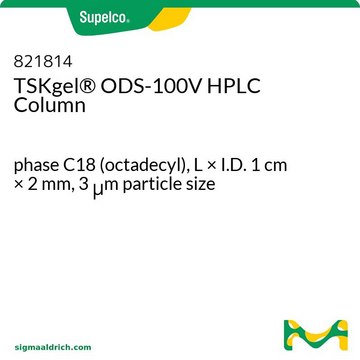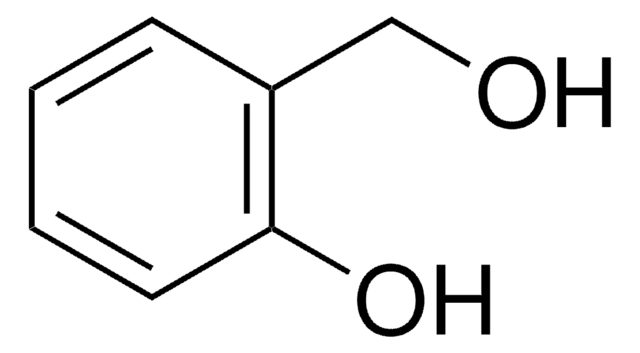8.21814
4-Hydroxybenzoic acid
for synthesis
Synonym(e):
4-Hydroxybenzoic acid
About This Item
Empfohlene Produkte
Qualitätsniveau
Assay
≥98.0% (HPLC)
Selbstzündungstemp.
>250 °C
Wirksamkeit
>5000 mg/kg LD50, oral (Rat)
pH-Wert
3.3 (20 °C, 1 g/L in H2O)
mp (Schmelzpunkt)
213-216 °C
Löslichkeit
5 g/L
Schüttdichte
600 kg/m3
Lagertemp.
2-30°C
InChI
1S/C7H6O3/c8-6-3-1-5(2-4-6)7(9)10/h1-4,8H,(H,9,10)
InChIKey
FJKROLUGYXJWQN-UHFFFAOYSA-N
Anwendung
- Production and Applications of Hydroxy Acids: This study discusses the synthesis of hydroxy acids including 4-hydroxybenzoic acid, focusing on enzymatic routes which are pivotal for drug discovery due to their application in creating more efficient and environmentally friendly production methods (Bhalla et al., 2014).
- Microbial Synthesis from Renewable Feedstocks: Highlights microbial production methods for 4-hydroxybenzoic acid from renewable feedstocks, crucial for sustainable chemical synthesis in pharmaceuticals and material science (Chen et al., 2021).
- Laccase-mediated Oligomerization: Explores the enzymatic oligomerization of 4-hydroxybenzoic acid which could lead to new materials with improved stability and functionality, useful in material science and drug delivery systems (Slagman et al., 2016).
- Antiviral Properties: Discusses the potential of 4-hydroxybenzoic acid derived from the autooxidation of catechinic acid as an antiviral agent against Herpes Simplex Virus, offering potential applications in drug development (Alfei et al., 2022).
- Soil Microbial Community Impact: Investigates the effect of 4-hydroxybenzoic acid on grape soil microbial communities, emphasizing its potential environmental impact and applications in sustainable agriculture and academic studies (Guo et al., 2015).
Hinweis zur Analyse
Schmelzbereich (unterer Wert): ≥ 214 °C
Schmelzbereich (oberer Wert): ≤ 217 °C
Identität (IR): entspricht
Signalwort
Danger
H-Sätze
Gefahreneinstufungen
Eye Dam. 1 - STOT SE 3
Zielorgane
Respiratory system
Lagerklassenschlüssel
11 - Combustible Solids
WGK
WGK 1
Flammpunkt (°F)
Not applicable
Flammpunkt (°C)
Not applicable
Analysenzertifikate (COA)
Suchen Sie nach Analysenzertifikate (COA), indem Sie die Lot-/Chargennummer des Produkts eingeben. Lot- und Chargennummern sind auf dem Produktetikett hinter den Wörtern ‘Lot’ oder ‘Batch’ (Lot oder Charge) zu finden.
Besitzen Sie dieses Produkt bereits?
In der Dokumentenbibliothek finden Sie die Dokumentation zu den Produkten, die Sie kürzlich erworben haben.
Kunden haben sich ebenfalls angesehen
Unser Team von Wissenschaftlern verfügt über Erfahrung in allen Forschungsbereichen einschließlich Life Science, Materialwissenschaften, chemischer Synthese, Chromatographie, Analytik und vielen mehr..
Setzen Sie sich mit dem technischen Dienst in Verbindung.










